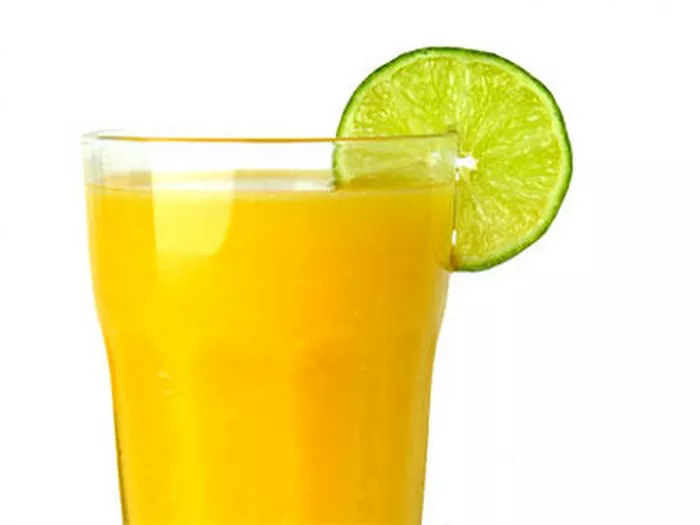Diabetes management revolves around making thoughtful dietary choices, and selecting the right beverages is equally vital in this journey. Among the wide array of options, fruit juices hold a special place due to their perceived health benefits. However, for individuals with diabetes, understanding the impact of fruit juices on blood sugar levels is crucial. In this comprehensive guide, we explore the best fruit juice options for diabetes and offer insights into making informed decisions.
Decoding the Sugar Conundrum
Fruits are naturally rich in sugars, primarily fructose. When fruits are juiced, their natural sugars become concentrated, and the fiber content diminishes. This concentrated sugar content can lead to rapid spikes in blood sugar levels. For those managing diabetes, controlling blood sugar levels is paramount to prevent complications.
1. The Ideal Fruit Juice: A Myth?
It’s important to note that no single fruit juice can be deemed the “ideal” option for everyone with diabetes. Factors such as individual blood sugar responses, overall diet, and health status play a crucial role in determining the best fruit juice choice. However, certain considerations can help guide the selection process.
2. Whole Fruit vs. Fruit Juice
Whole fruits offer an advantage over fruit juices due to their higher fiber content. Fiber slows down the absorption of sugars, leading to a more gradual increase in blood sugar levels. When you consume whole fruits, you’re getting the benefits of vitamins, minerals, antioxidants, and fiber, which contribute to better blood sugar control.
3. Berry Juices: A Smart Choice
Berries, such as blueberries, strawberries, and raspberries, are rich in antioxidants, vitamins, and fiber. Berry juices, when consumed in moderation, can be a wise option for diabetics. These juices tend to have a lower glycemic index (GI), meaning they have a slower and gentler impact on blood sugar levels compared to juices made from high-sugar fruits.
4. Citrus Juices: Balancing Flavor and Nutrition
Citrus fruits like oranges, grapefruits, and lemons are renowned for their vitamin C content and refreshing flavor. While citrus juices can offer nutritional benefits, they can also have a relatively higher sugar content. Opting for freshly squeezed, unsweetened citrus juices and consuming them in smaller portions can help mitigate their impact on blood sugar levels.
5. Vegetable-Infused Juices: A Lower-Sugar Alternative
Combining vegetables with fruits to create juices can be a strategic approach for diabetics. Vegetables like spinach, kale, cucumber, and celery are low in carbohydrates and can help offset the sugar content from fruits. Vegetable-infused juices provide a plethora of nutrients while minimizing the rapid blood sugar spikes associated with pure fruit juices.
6. Tomato Juice: A Unique Contender
Tomato juice might not be the first option that comes to mind, but it can be a valuable addition to a diabetic’s beverage repertoire. Tomato juice is relatively low in sugar and contains a powerful antioxidant called lycopene, which has been associated with potential health benefits, including improved heart health. However, it’s essential to choose low-sodium versions and read labels to ensure there are no added sugars.
7. Watermelon Juice: Moderation is Key
Watermelon, while delicious and hydrating, is relatively high in natural sugars. Consequently, watermelon juice should be consumed in moderation by individuals with diabetes. Balancing the intake of watermelon juice with other lower-sugar options is essential to prevent drastic spikes in blood sugar levels.
8. Apple Juice: Proceed with Caution
Apple juice, a childhood favorite for many, poses challenges for those with diabetes. Apples are relatively high in natural sugars, and when juiced, their sugar content becomes concentrated. Opting for a small serving of unsweetened, diluted apple juice and pairing it with a source of protein or healthy fats can help manage its impact on blood sugar.
9. Portion Control: The Key to Enjoyment
When consuming fruit juices, regardless of the type, portion control is vital for individuals with diabetes. Limiting the quantity of juice intake can help prevent sudden spikes in blood sugar levels. A common strategy is to dilute fruit juices with water or club soda to reduce their sugar concentration while still enjoying their flavor.
10. Making Informed Choices
When selecting fruit juices for diabetes management, a few key principles can guide your decision-making process:
Prioritize Whole Fruits: Whenever possible, choose whole fruits over fruit juices. The fiber in whole fruits helps regulate blood sugar levels and provides other essential nutrients.
Opt for Lower-Sugar Options: Select juices from fruits with lower sugar content, such as berries and citrus fruits. These options are less likely to cause sharp spikes in blood sugar.
Dilution and Mixtures: Dilute fruit juices with water or combine them with vegetables to minimize the sugar impact. This strategy can enhance the nutritional profile of the beverage.
Monitor Blood Sugar Levels: Regularly monitor your blood sugar levels to understand how different fruit juices affect your body. This can guide your choices and help you make adjustments as needed.
Consult a Healthcare Professional: If you have any doubts or questions about incorporating fruit juices into your diet, consult a registered dietitian or healthcare professional. They can provide personalized guidance based on your health status and dietary preferences.
In Conclusion
Choosing the best fruit juices for diabetes management requires careful consideration of factors like sugar content, glycemic index, and portion sizes. While there isn’t a one-size-fits-all answer, opting for whole fruits whenever possible and selecting lower-sugar options can help individuals with diabetes enjoy the nutritional benefits of fruit juices without compromising blood sugar control. Remember that moderation, portion control, and overall dietary balance are key components of effective diabetes management. By making informed choices, individuals with diabetes can savor the flavors of various fruit juices while prioritizing their health and well-being.























